The Economics and Statistics Division maintains archives of previous publications for accountability purposes, but makes no updates to keep these documents current with the latest data revisions from Statistics Canada. As a result, information in older documents may not be accurate. Please exercise caution when referring to older documents. For the latest information and historical data, please contact the individual listed to the right.
<--- Return to Archive
For additional information relating to this article, please contact:
May 27, 2024BUSINESS OPENING AND CLOSING, FEBRUARY 2024 Monthly (February 2024 vs January 2024, seasonally adjusted)
The number of active businesses in Nova Scotia declined 0.04% from January 2024 to February 2024 (going down to 20,771 active businesses).
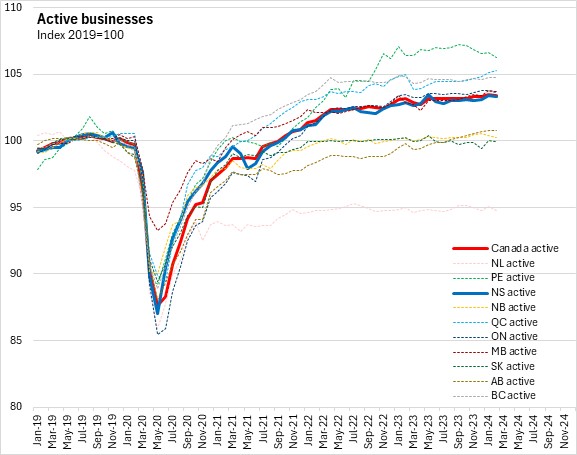
Nationally, active businesses were down by 0.08%. All provinces except Québec reported lower numbers of active businesses in February 2024 compared with January 2024. The largest declines were reported in Prince Edward Island and Newfoundland and Labrador.
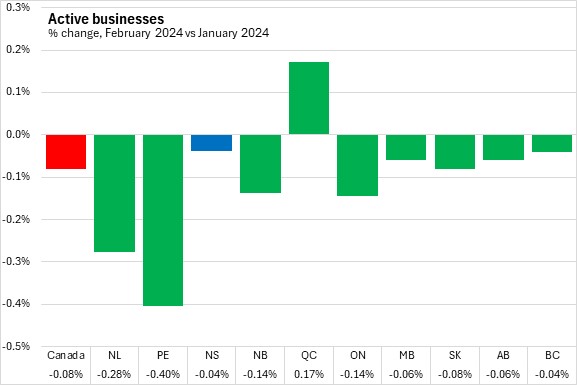
A business will be classified as 'opening' if it had no employment in the previous month and then has employment in the next month. A business is 'closing' if it had employment in the previous month and no employment in the current month. For opening and closing, the reason could be a permanent change (i.e. business exit) or temporary for reasons such as seasonal operations, capital maintenance or restructuring. Continuing business are those that had employment in both the current and previous month. Active businesses are the sum of continuing and opening business in the current month.
The rate at which business either opened, continued or closed can be examined to see how the number of active businesses has changed. The calculation for the opening, continuing and closure rates are based on the number of active businesses in the previous month.
Most businesses continue operating each month. In February 2024, Nova Scotia's business continuing rate was 95.6%, same as the national average. Québec reported the highest business continuing rate (96.5%) while Prince Edward Island (94.7%) reported the lowest.
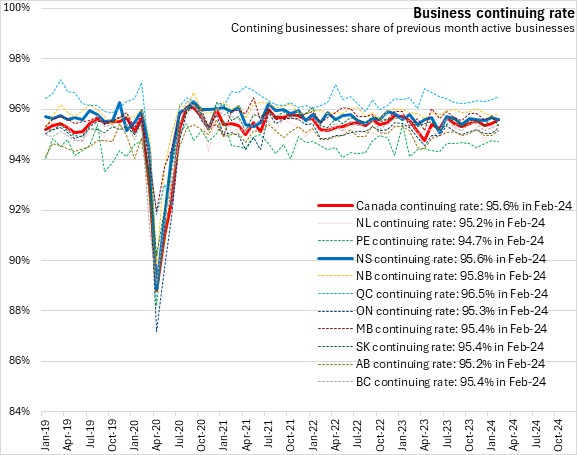
Nova Scotia's business opening rate was 4.5% in February 2024, same as the national level. Alberta had the highest business opening rate (4.9%) while Quebec had the lowest (3.5%).
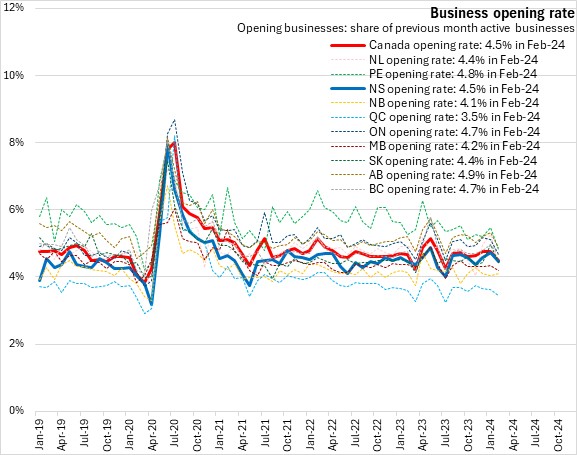
Nova Scotia's business closing rate was 4.5% in February 2024 (4.7% nationally). Prince Edward Island reported the highest business closing rate (5.4%) while Québec had the lowest business closing rate (3.5%).
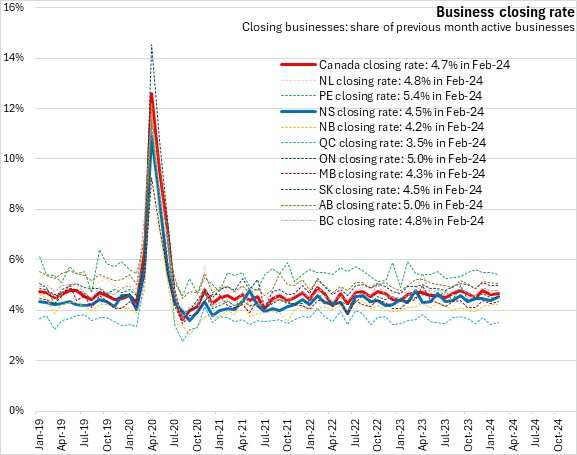
Year-over-year (February 2024 vs February 2023)
Compared with February 2023, the number of active businesses was up 0.44% for Nova Scotia, third behind Alberta and Manitoba. Nationally, active businesses were 0.17% higher than in February 2023. Saskatchewan reported the largest year-over-year declines in active businesses.
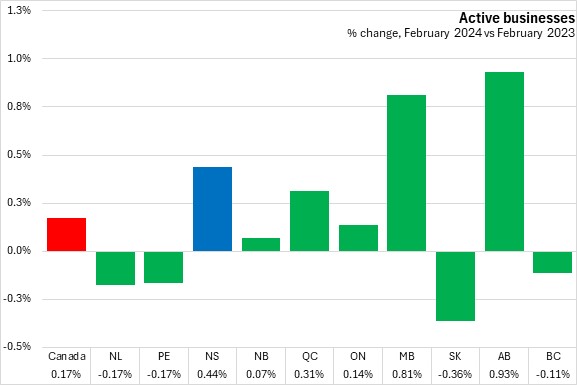
The number of active businesses in the Halifax and East Hants Census Metropolitan Area was up 2.2% from February 2023 to Februry 2024.
Out of 35 CMAs, 28 reported growth in active businesses over the past 12 months. Calgary and Halifax and East Hants reported the largest rises in the number of active businesses while Guelph and Saskatoon reported the biggest declines.
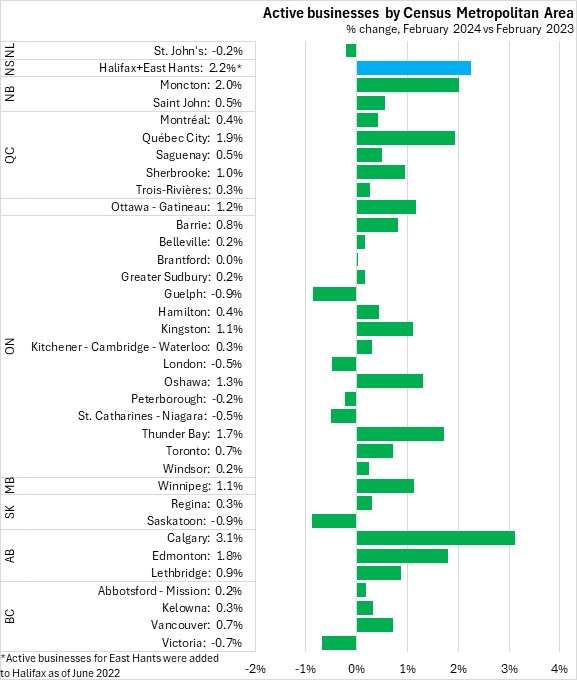
Compared with Febraury 2023, the number of active Nova Scotia businesses in February 2024 was lower in most business sector industries, led by forestry/fishing, mining/oil/gas and finance/insurance/management. From February 2023 to February 2024, there were increases in the number of active businesses in utilities, construction, information/culture, real estate/leasing, professional/technical services and personal/repair services.
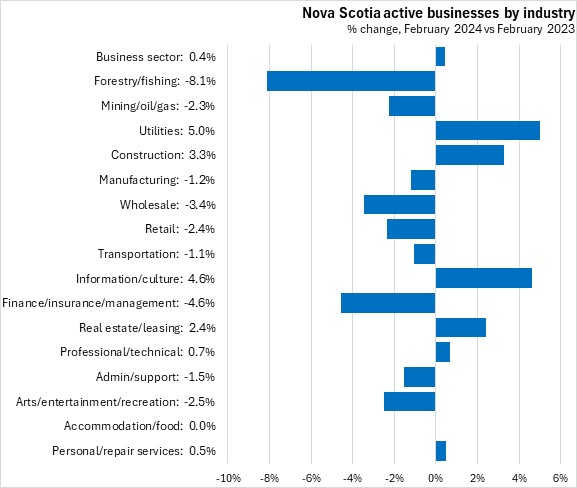
Nationally, the number of active businesses was down for many business sector industries except utilities, construction, information/culture, real estate/leasing, arts/entertainment/recreation, and accommodation/food.
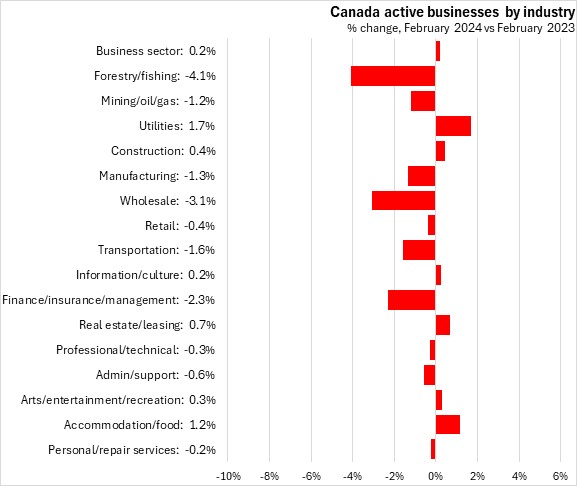
Statistics Canada has broken out specific data for tourism-related industries. Compared with February 2023, the number of active tourism-related businesses declined 0.5% in Nova Scotia as of February 2024, with declines in transportation, recreation/entertainment, and food/beverage, offsetting increases in travel services and accommodations.
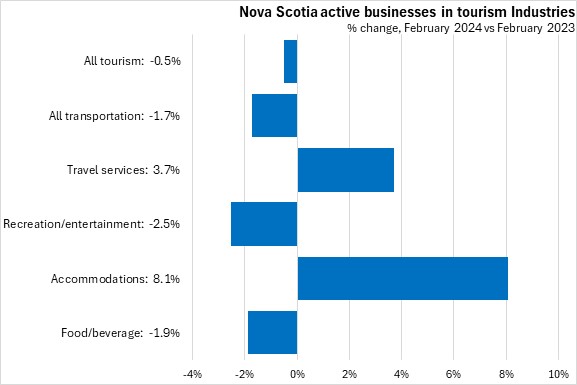
Nationally the number of tourism-related businesses increased 0.8% from February 2023 to February 2024. Growth in travel services, recreation/entertainment, accommodations, and food/beverage offset declines in transportation.
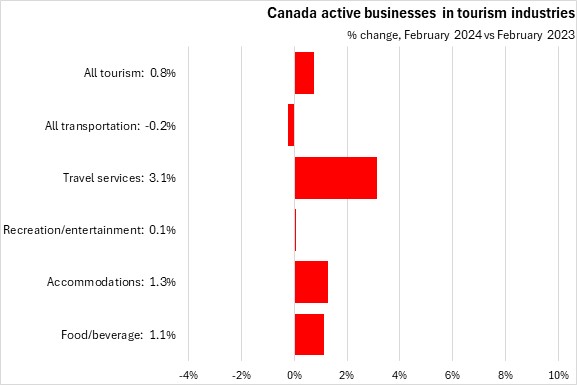
Trends
There has been a downward trend in forestry/fishing active businesses, while the decline in mining/quarrying has stabilized in the last year. Utilities have also been stable over the past year.
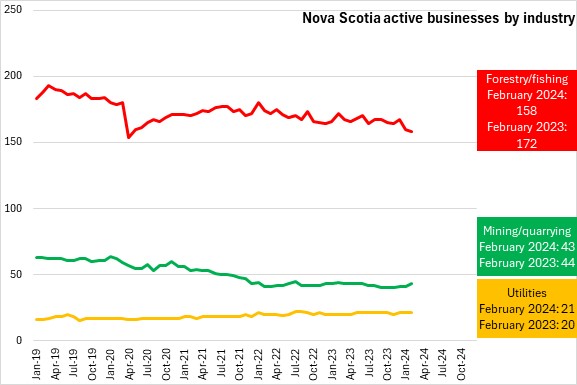
After the pandemic, the number of active businesses in construction have steadily grown. Manufacturing businesses have remained stable for the past 2 years.
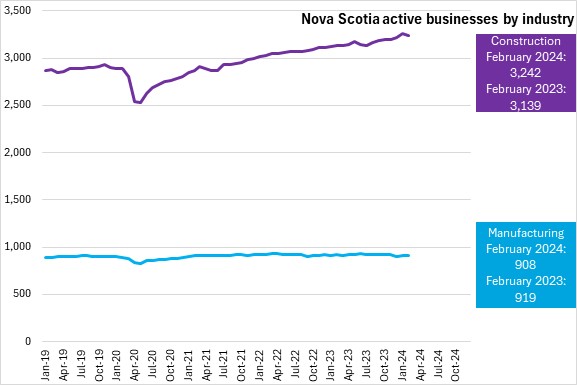
There have been small growth in recent months in active personal/repair services, while arts/recreation and accomodation/food stablized growth of active businesses in the recent months.
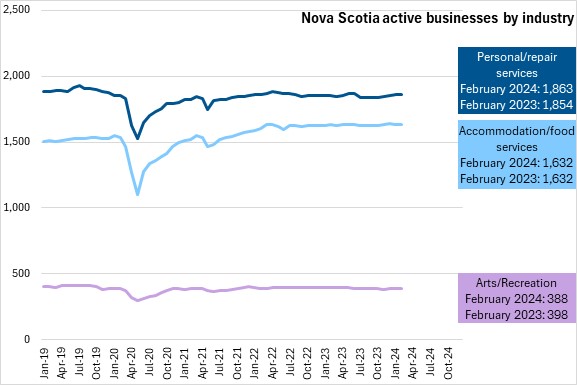
Retail and wholesale businesses have declined in recent months.
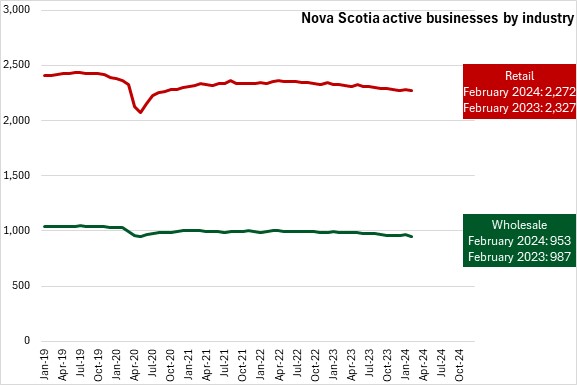
Real estate/leasing active businesses have been growing since after the pandemic, while administrative/support/call centre businesses declined in the final months of 2023. Transportation businesses have been trending down slightly over the last year.
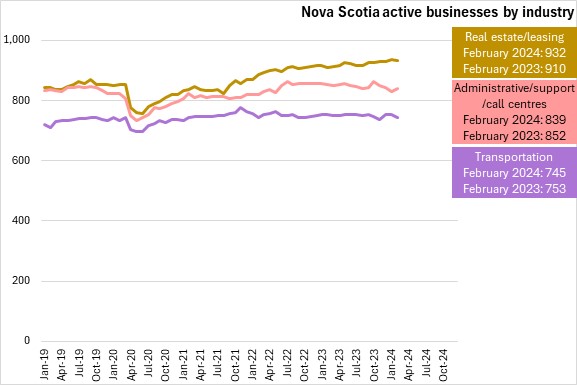
Growth in professional/technical services active businesses has stabilized in the recent months after steady gains in the last two years. Finance/insurance/management businesses have also trended down in recent months while the number of active businesses in information/culture has slowly tredned up in recent months.
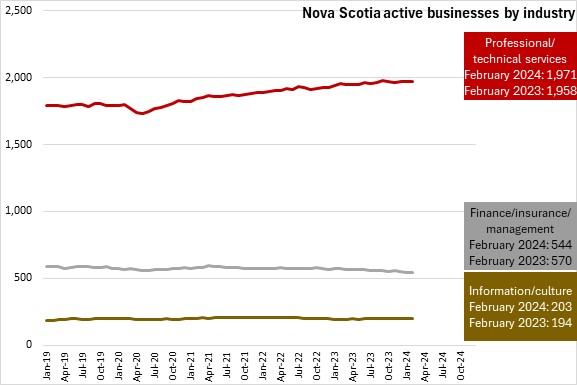
The source data is seasonally adjusted. The data may not aggregate due to firms being classified into multiple industry or geography.
Source: Statistics Canada. Table 33-10-0270-01 Experimental estimates for business openings and closures for Canada, provinces and territories, census metropolitan areas; Methodology: Business Opening and Closing
<--- Return to Archive